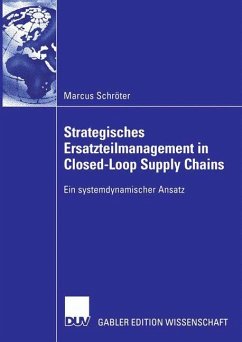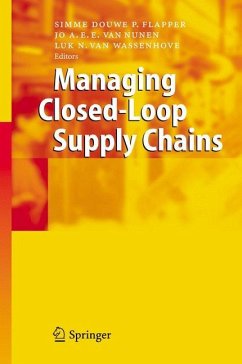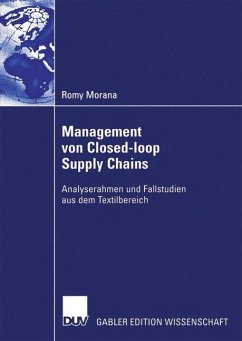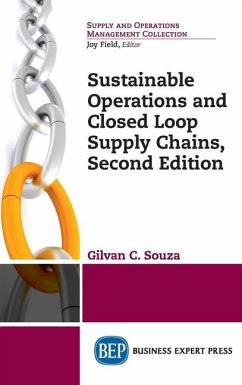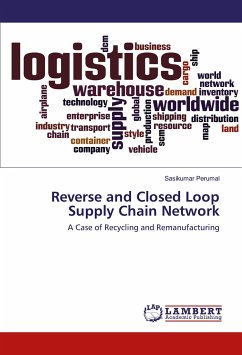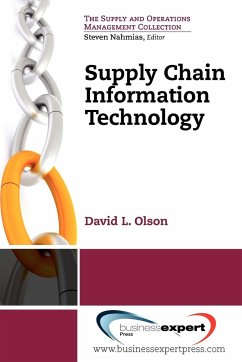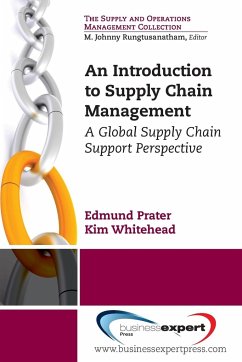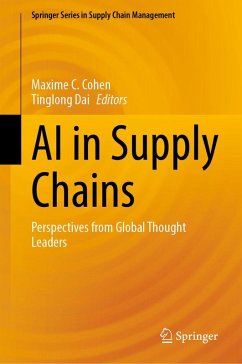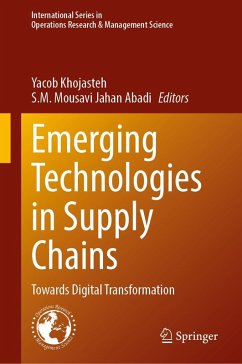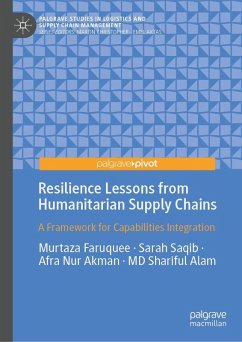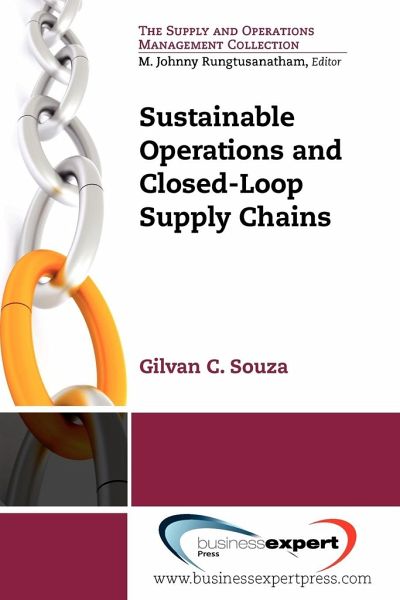
Sustainable Operations and Closed-Loop Supply Chains
Versandkostenfrei!
Versandfertig in 1-2 Wochen
16,99 €
inkl. MwSt.

PAYBACK Punkte
8 °P sammeln!
China maintains rapid economic growth and is currently the second largest economy in the world. This book focuses on opportunities that are available in the Chinese market and presents the obstacles that organizations can face, supported by data of real businesses internationalizing to China.
The book can be viewed from the perspective of a medium to large firm's journey towards sustainability. A firm that wants to be sustainable considers the triple bottom line when making decisions, i.e., the firm takes into account economic (profit), environmental (planet), and social (people) impacts when making decisions. By focusing on the triple bottom line (3Ps), the firm ensures a steady supply of inputs such as raw materials and labor indefinitely.
The first step towards sustainability is aimed at reducing waste in operations (mainly production), with the help of such tools as lean and six-sigma. The firm then performs a Life-Cycle Assessment (LCA) for each of its main products and processes. LCA is a methodology designed to assess the environmental impact (e.g., energy consumption) of a product or process, from raw material extraction to production (in its different stages), packaging, distribution, sales, consumer use, and end-of-life disposal. With a better understanding of the major impacts, the firm can then target actions designed to reduce the firm's environmental impact (which in most cases also improves the economic bottom line), that is, the firm aims to be eco-efficient.
The final step in the journey towards sustainability, which is the ultimate goal, is to close the loop. To close the loop, the firm starts by designing products for multiple life cycles (as in design for remanufacturing), or products designed according to a "cradle-to-cradle" philosophy that ensures ease of disassembly and 100% recyclability (up-cycling as opposed to down-cycling).
The first step towards sustainability is aimed at reducing waste in operations (mainly production), with the help of such tools as lean and six-sigma. The firm then performs a Life-Cycle Assessment (LCA) for each of its main products and processes. LCA is a methodology designed to assess the environmental impact (e.g., energy consumption) of a product or process, from raw material extraction to production (in its different stages), packaging, distribution, sales, consumer use, and end-of-life disposal. With a better understanding of the major impacts, the firm can then target actions designed to reduce the firm's environmental impact (which in most cases also improves the economic bottom line), that is, the firm aims to be eco-efficient.
The final step in the journey towards sustainability, which is the ultimate goal, is to close the loop. To close the loop, the firm starts by designing products for multiple life cycles (as in design for remanufacturing), or products designed according to a "cradle-to-cradle" philosophy that ensures ease of disassembly and 100% recyclability (up-cycling as opposed to down-cycling).



